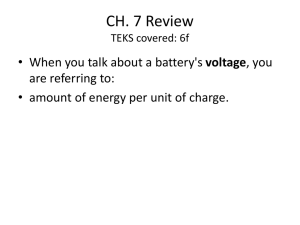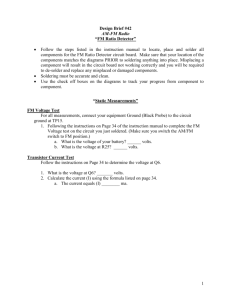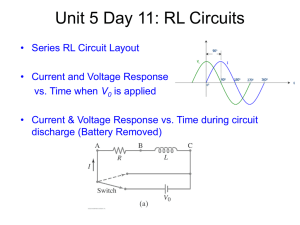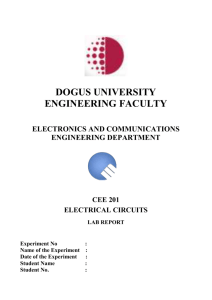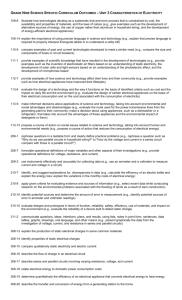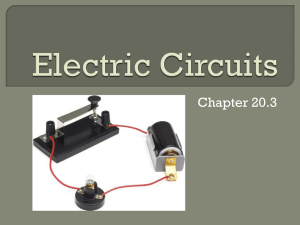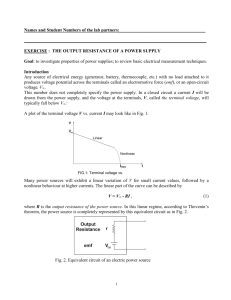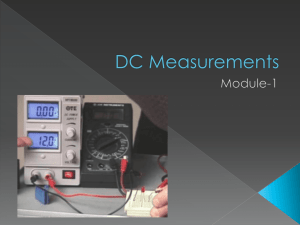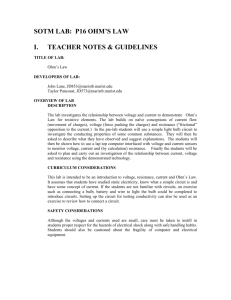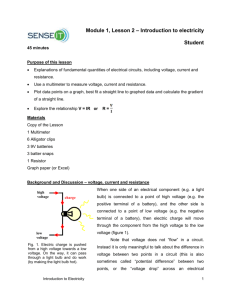Lab Report: How does voltage affect the current in my circuit
advertisement
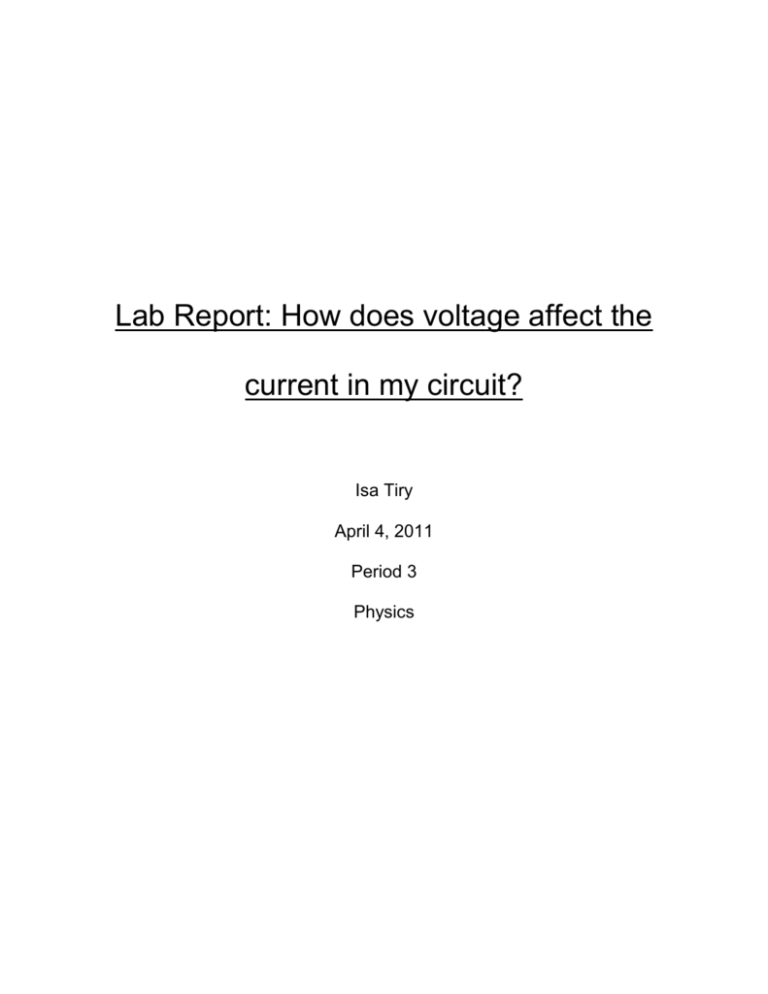
Lab Report: How does voltage affect the current in my circuit? Isa Tiry April 4, 2011 Period 3 Physics How does voltage affect the current in my circuit? For this project we studied electricity in circuits. Electricity in a circuit can be described by its current, resistance and voltage. Voltage is energy per charge in a circuit. It is measured in volts. Current is the flow of electricity in a circuit and is measured in amps. Resistance, which is measured in ohms, is the thing that slows current down in a circuit. Ohm’s Law is that more voltage creates more current and more resistance creates less current. For this project, we designed our own experiment to answer the question: How does the voltage affect the current in my circuit? Our hypothesis was that if we increased the voltage then the current would increase, as well, because of Ohm’s Law. Methods: Procedure: 1. Design circuit 2. Set up circuit 3. Connect batteries and lights 4. Measure current with multimeter 5. Increase voltage 6. Measure current with multimeter again 7. Repeat as many times as needed Materials: Batteries of varying voltage Wire Christmas lights (or other small lights) Electric tape Cardboard Data: This graph shows that current increase with voltage. Conclusion: We predicted that the current would increase because of Ohm’s Law. Our results support our hypothesis because our data clearly shows that the current increased as we as we added voltage. One source of error could be that we read the multimeter wrong. Another source of error is we could have used the wrong amount of voltage. A third source of error could be that we used an inconsistent amount of resistance.

